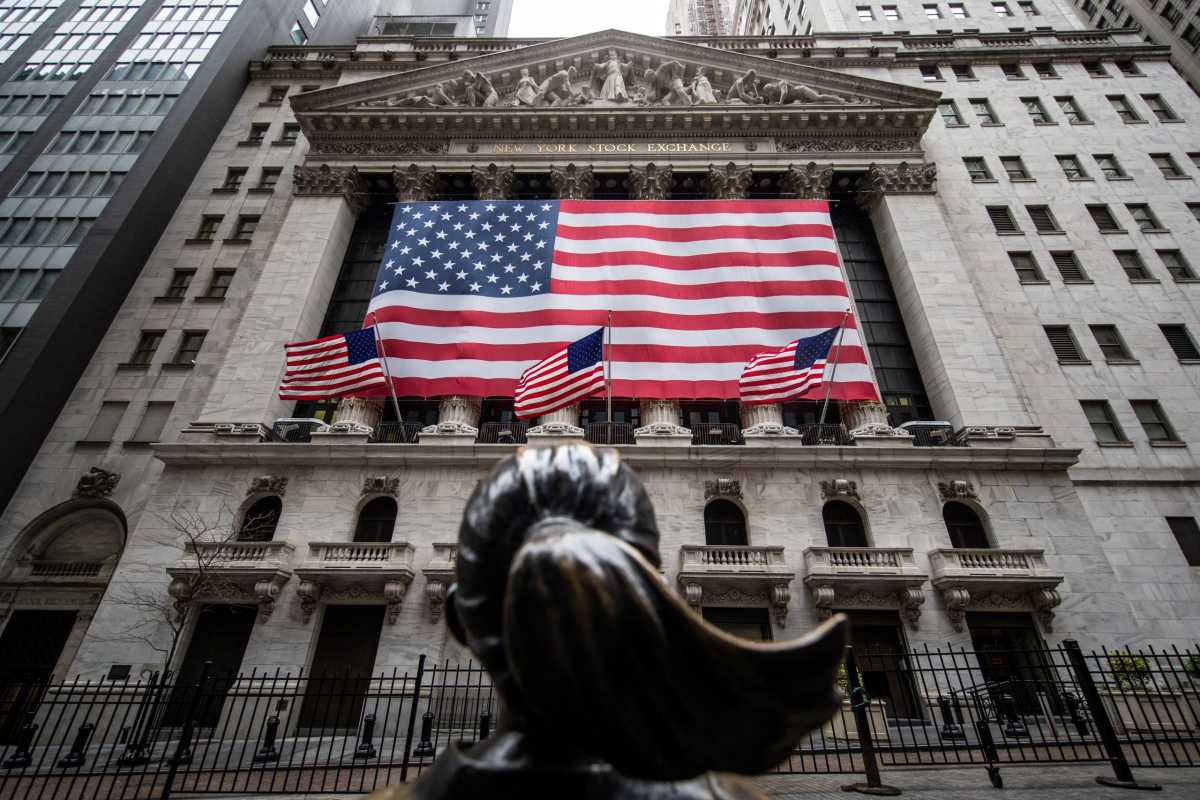By Sinéad Carew
Investors are pinning their hopes for the reopening of the U.S. economy on the potential for wider availability of testing for COVID-19 cases and on drug trials for treatments of the deadly disease but said, until there is concrete progress in these areas, further stock market gains may be limited.
Much of the S&P 500’s <.SPX> almost 27% advance above its March 23 low has been due to hopes that massive U.S. fiscal and monetary support would dampen the economic blow from stay-at-home orders designed to contain the coronavirus pandemic.
But recently, the index has reacted to reports about trials and in particular Gilead Science’s <GILD.O> remdesivir experimental treatment for COVID-19, the respiratory illness caused by the new coronavirus. Remdesivir, which previously failed as a treatment for Ebola, is designed to keep a virus from replicating and overwhelming a patient’s immune system.
This volatility highlights investor impatience for indications of when state and Federal authorities might start to ease stay-at-home orders and get people back to work.
So far there are no approved treatments or vaccines for the disease which has killed over 190,000 people globally, according to a Reuters tally. The disease has infected more than 928,000 people and killed more than 52,000 in the United States alone, according to the latest data from the U.S. Centers for Disease Control and Prevention.
“Any sentiment around a therapy is really moving markets because it shapes expectations for a return to normalcy which would be needed to get an economic recovery started,” said Shawn Cruz, manager of trader strategy at TD Ameritrade in Jersey City, New Jersey.
The S&P added to gains on Friday after the lead investigator in a U.S. government trial of remdesivir told Reuters the trial may yield results as early as mid-May.
But on Thursday the index temporarily pared gains after a report Gilead’s drug failed a trial the drugmaker itself deemed inconclusive because the study was ended early. On April 17 investors were encouraged after medical news publication STAT reported rapid improvements in COVID-19 patients in one hospital studying the drug.
While Michael O’Rourke, chief market strategist at JonesTrading in Stamford, Connecticut is encouraged by the number of researchers working on coronavirus treatments, he is cautious about the stock market’s near-term prospects.
“The only thing that pushes us above this range in a sustainable way is a therapeutic solution or a vaccine that allows us to return to the pre-crisis level of business,” he said. “I think we’ll get a medical solution. The big question is the time frame. The longer it takes it becomes harder (for the economy) to snap back and rebound.”
While there are more than 70 vaccines in development for coronavirus, Manulife Investment Management’s Steven Slaughter, who manages a roughly $3.5 billion dedicated healthcare fund said he expects development of a successful vaccine to take at least 12-18 months compared to the average vaccine development time of 5-7 years.
Then it could be years before pharmaceutical companies can produce enough to vaccinate the world’s entire population.
But Slaughter is optimistic at least some treatment will be validated in trials in the next three to six months, and said this would give officials “more latitude to restart the economy.”
He said there are four main types of treatments being tested by companies including Gilead, Takeda Pharmaceutical <4502.T>, Regeneron Pharmaceuticals <REGN.O> and Alexion Pharmaceuticals <ALXN.O> that all hold some promise.
While treatments may not necessarily slow transmission of the disease, they could help doctors control the severity of infections, easing pressure on intensive care units (ICU).
“If we can take a patient that otherwise would’ve spend 2-3 weeks in an ICU bed out of that ICU bed in 2-3 days that has an enormous beneficial impact on our ability to handle outbreaks or to handle a potential second wave of infections,” he said.
In the meantime officials should at least look for greater availability of tests that can detect virus infections and for ways to track and trace people who might have been exposed, before easing lockdowns, some strategists said.
“What will be more critical will be the testing capacity and the efficacy of track and trace programmes,” said Salman Ahmed, chief investment strategist at Lombard Odier Investment Management. Test developers include Abbott Laboratories <ABT.N> and Roche Holding <ROG.S>.
Since much of the U.S. population has been told to stay at home and many businesses have been on pause since the middle of March, investors have already accounted for dismal earnings and a massive U.S. economic decline in the second quarter.
But recent S&P gains seem to imply a huge improvement in the economy in the third quarter, according to Peter Tuz, president of Chase Investment Counsel in Charlottesville, Virginia.
“There will be a vaccine and treatments for COVID-19 but people are underestimating the amount of time it takes for them to reach the market,” said Tuz. “If there are disappointments in three areas – vaccine, treatment and testing – we could back track some in the market.”


























